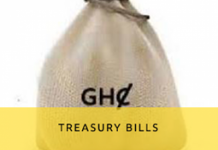Banks in Britain have warned the government that a plan to ban all Russians from holding more than 50,000 pounds ($65,430) in their accounts is illegal and unworkable, five sources said.
When Russia invaded Ukraine the government said that “all Russians” would be banned from holding large deposits at UK banks, with Prime Minister Boris Johnson saying it was part of a strategy aimed at isolating Moscow.
There are currently more than 70,000 Russian-born nationals living in Britain, government estimates show, and London has long been one of the top destinations for Russian money in Europe, with many elite families settling in the capital.
The banking industry sources told Reuters they feared the British proposals on Russian deposits would break equality laws, which forbid discrimination on the basis of nationality, in the latest challenge to rolling out sanctions against Moscow.
“What they are proposing is illegal, there’s no question about it,” said one bank executive, who has held talks with the government on the plans. “This feels like a rushed announcement where the consequences haven’t been thought through.”
A British government spokesperson declined to comment.
Britain is implementing what the government has called the biggest-ever raft of sanctions against Russia, including asset freezes and travel bans on hundreds of individuals and entities it has accused of propping up President Vladimir Putin.
But some of those measures, such as the blanket ban on wealthy Russian savers, are still at the drawing board, fuelling doubts over the effectiveness of the UK’s attempts to pressure Moscow and loosen connections to Russia that have led some to nickname its capital “Londongrad”.
The bank deposit plan is the only measure that targets all Russians in Britain, not just those being directly sanctioned.
The banking sources said they have asked for reassurances that they will not be sued if they enforce the curbs, seen as one of the most far-reaching sanctions tabled since Russia’s Feb. 24 invasion, the sources said.
Such reassurances, however, may not be possible without a change in the law and more than a month after the caps were proposed there have been no announcements about how they will work, including whether dual nationals would be hit or how multiple deposits across many banks would be handled.
























































![[FREE FREE MONEY] Predict and Win a Guaranteed GH¢200 From Us EVERY WEEK](https://wordpress.ghanatalksradio.com/wp-content/uploads/2022/02/Predict-and-Win-Final-09-03-2021-218x150.jpg)
![[Predict & Win – 8th/Oct.] WIN A Guaranteed ¢200 From Us This Week](https://wordpress.ghanatalksradio.com/wp-content/uploads/2021/10/maxresdefault-16-218x150.jpg)
![[Predict & Win – 2nd] WIN A Guaranteed ¢200 From Us This Week](https://wordpress.ghanatalksradio.com/wp-content/uploads/2021/09/maxresdefault-50-218x150.jpg)
![[Predict & Win – 25th] WIN A Guaranteed ¢200 From Us This Week](https://wordpress.ghanatalksradio.com/wp-content/uploads/2021/09/maxresdefault-36-218x150.jpg)
![[Predict & Win – 18th] WIN A Guaranteed ¢200 From Us This Week](https://wordpress.ghanatalksradio.com/wp-content/uploads/2021/09/maxresdefault-23-218x150.jpg)








![[National cathedral] See full list of churches that have contributed since 2018](https://wordpress.ghanatalksradio.com/wp-content/uploads/2020/09/Ghana-National-Cathedral-GhanaTalksRadio-100x70.jpg)



